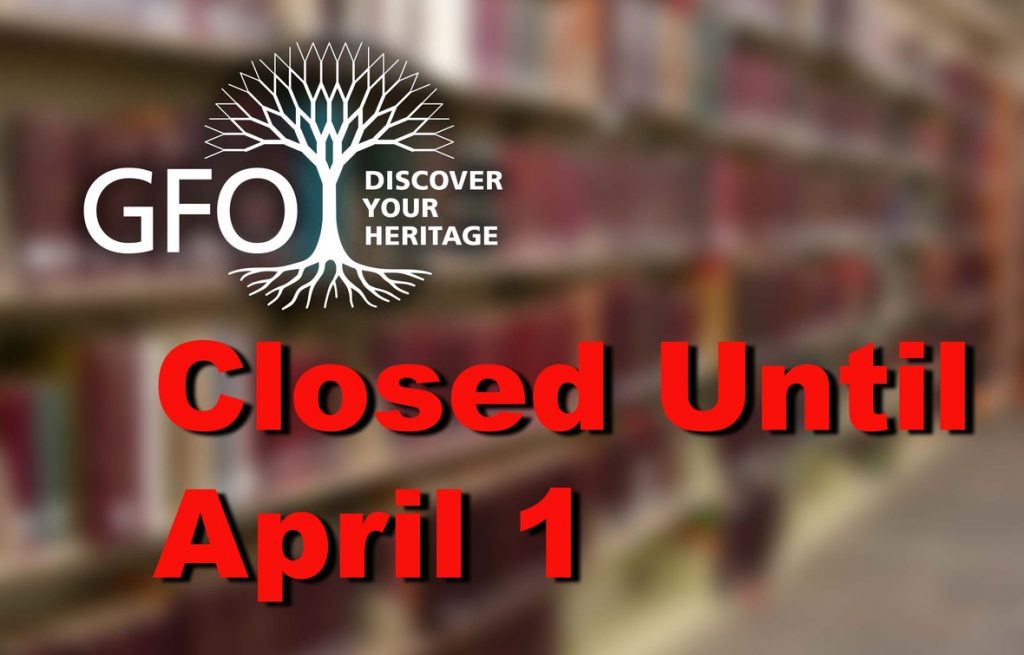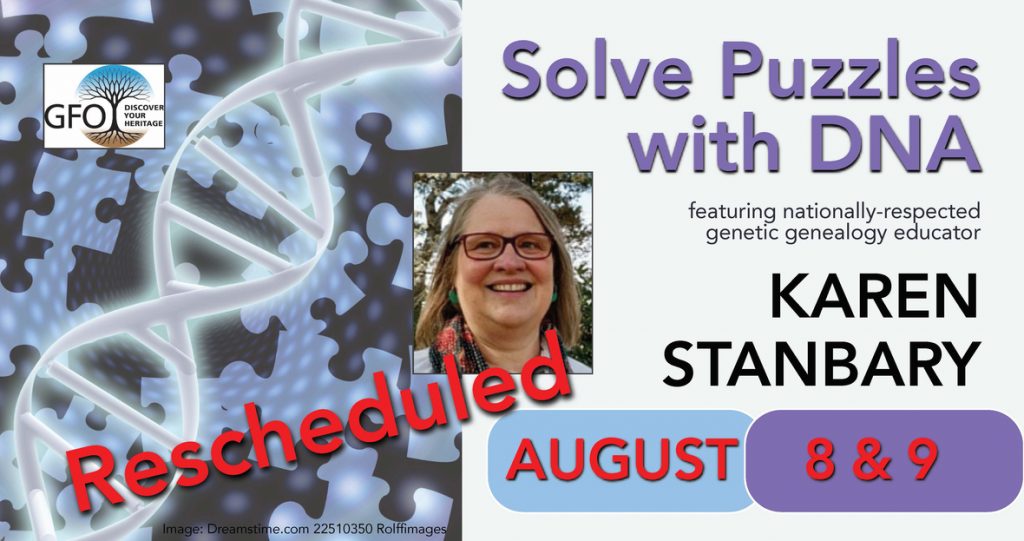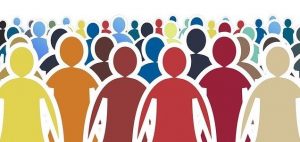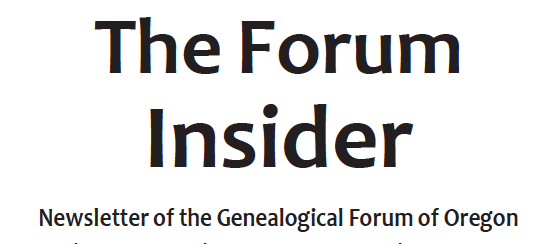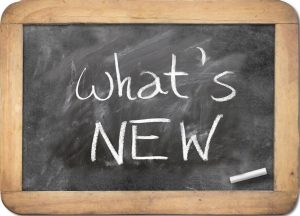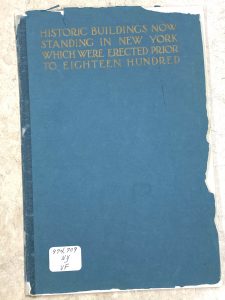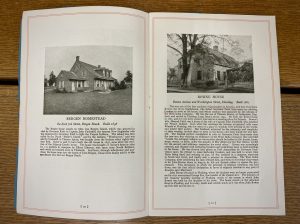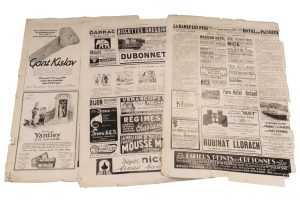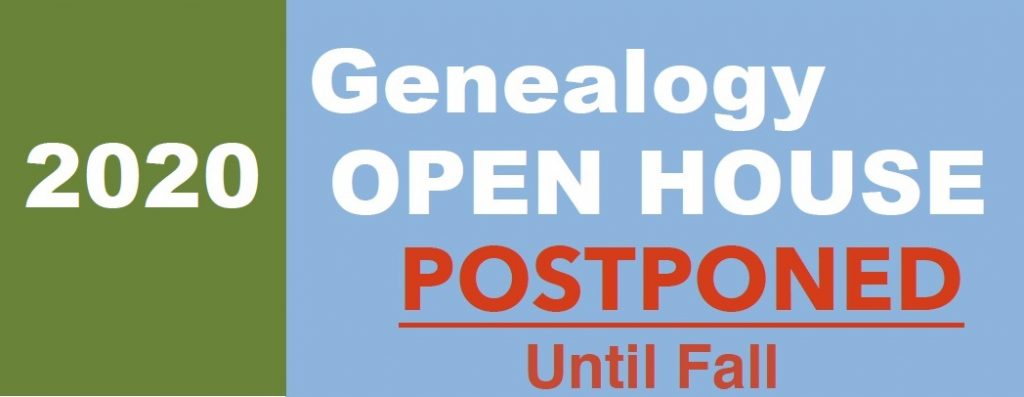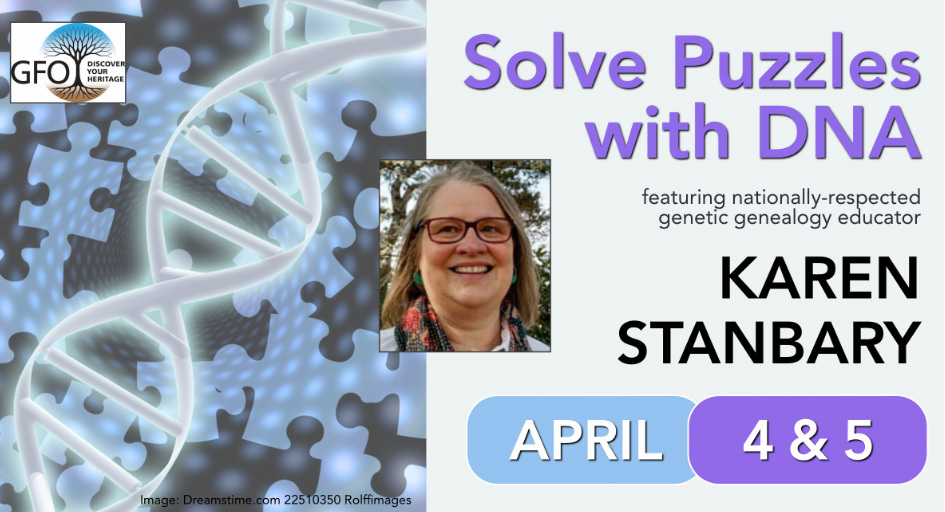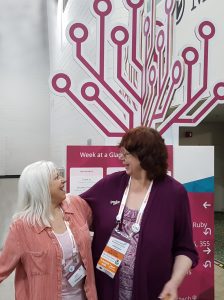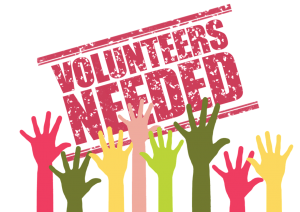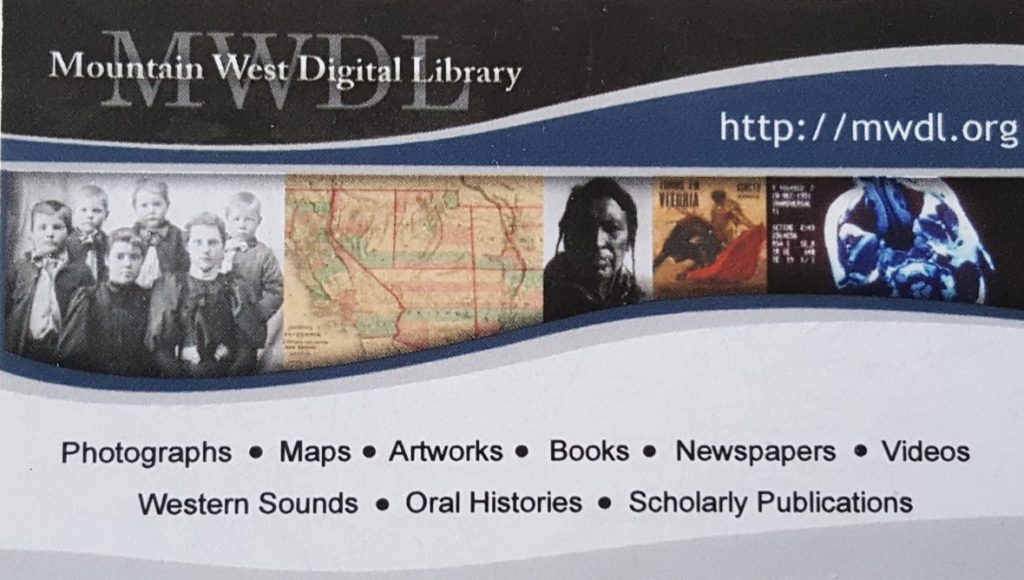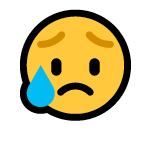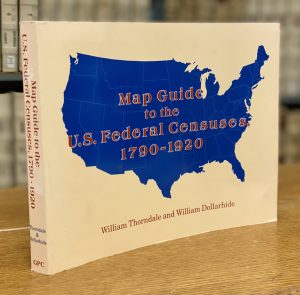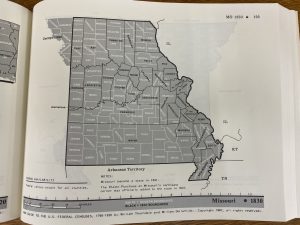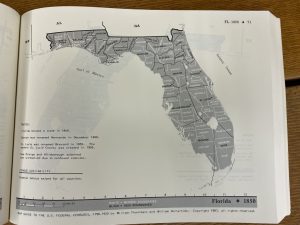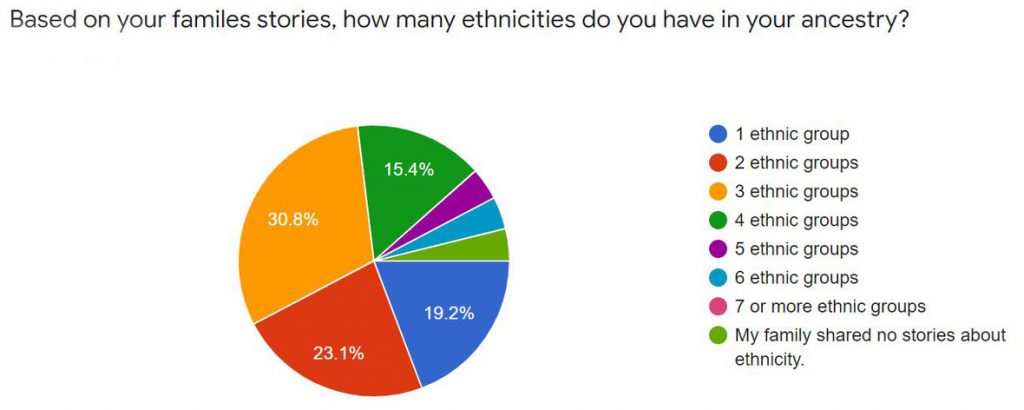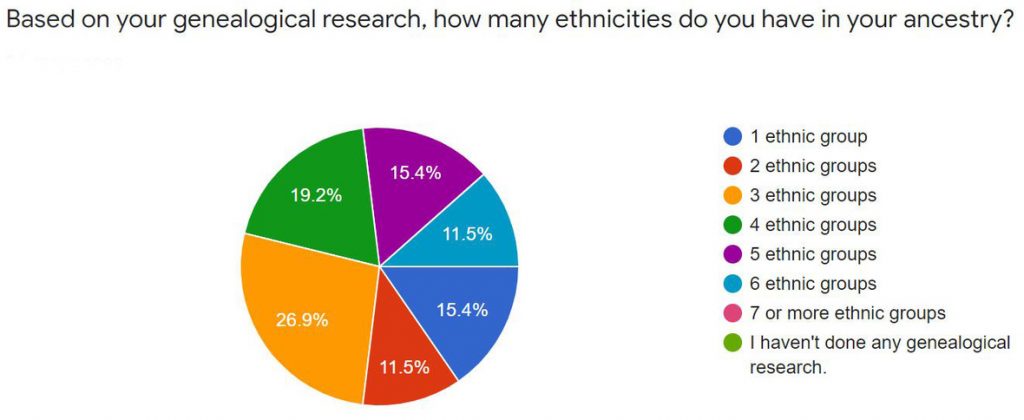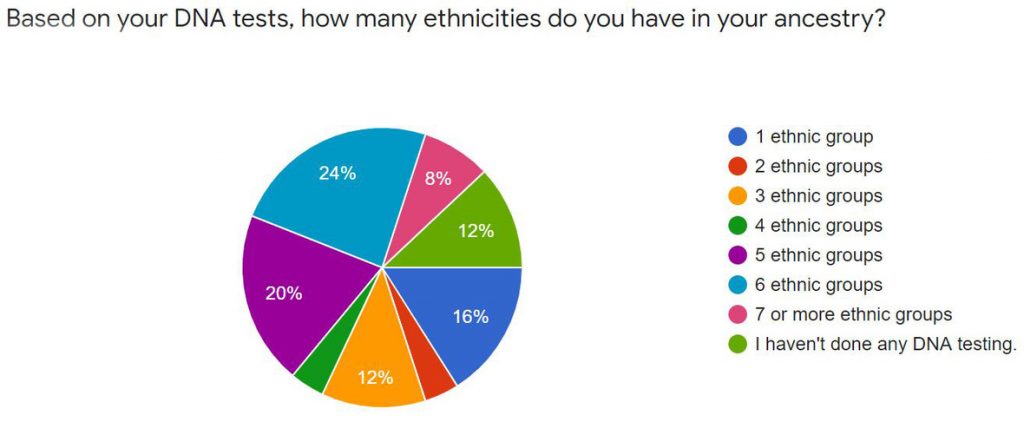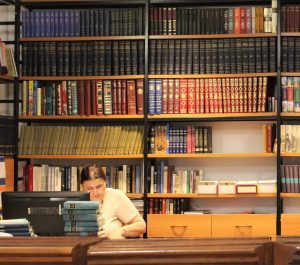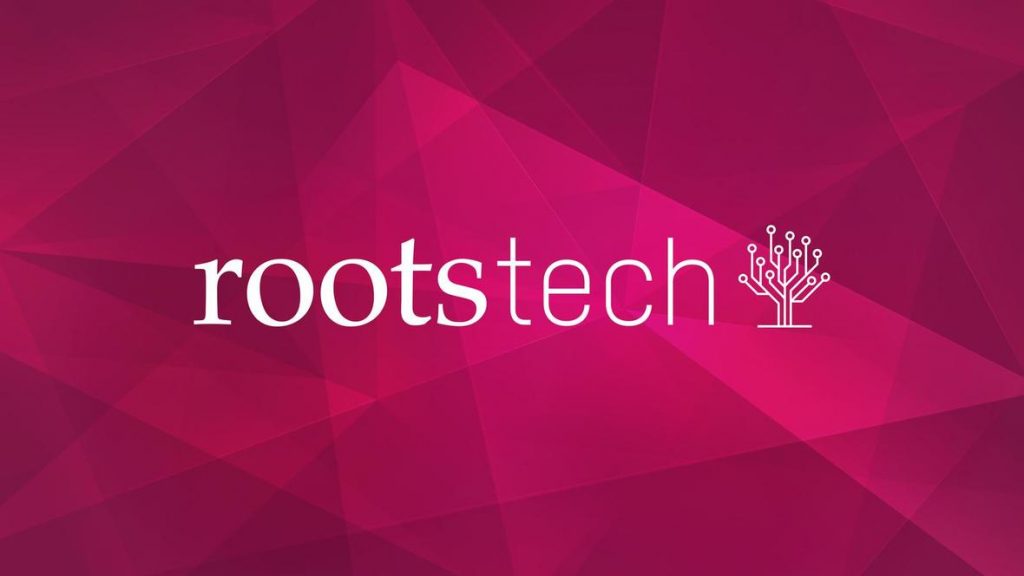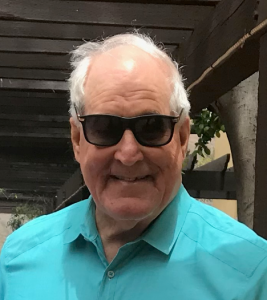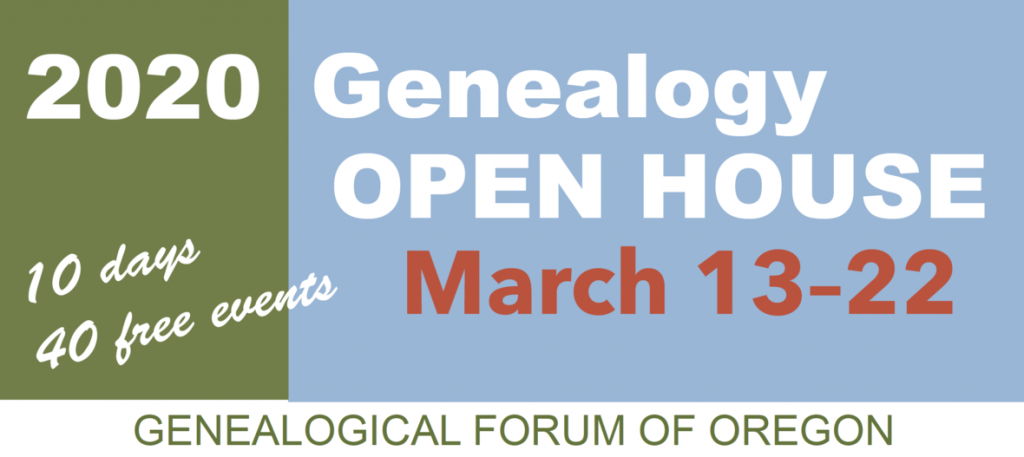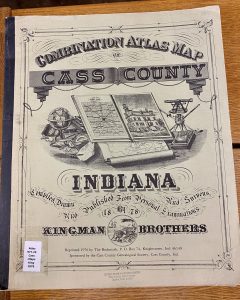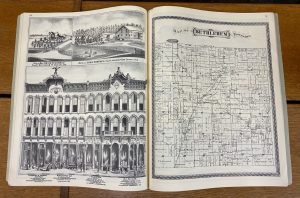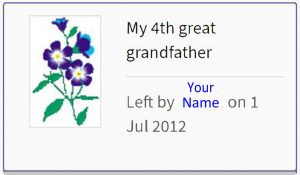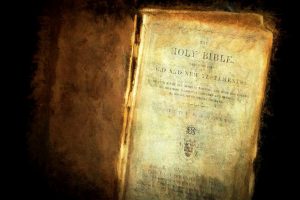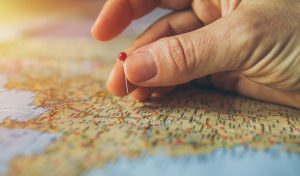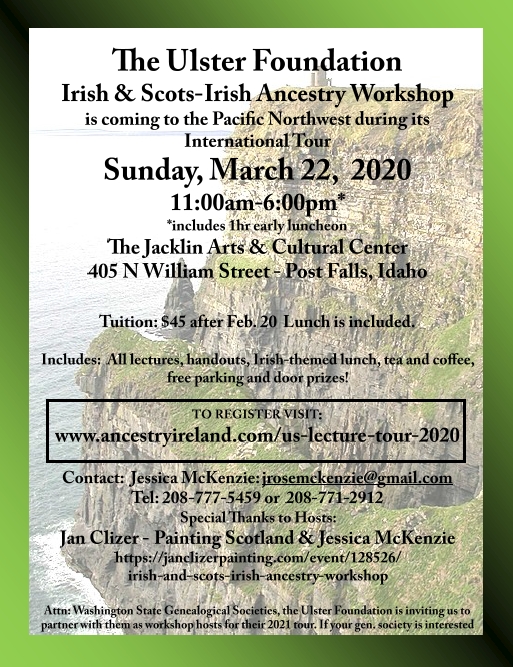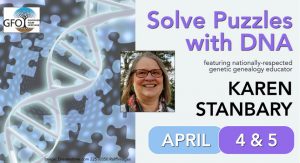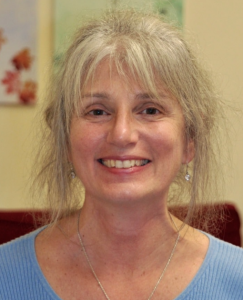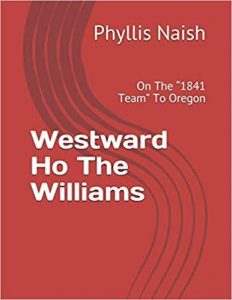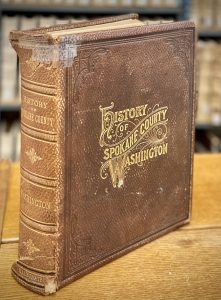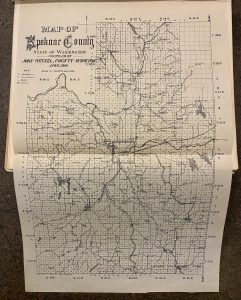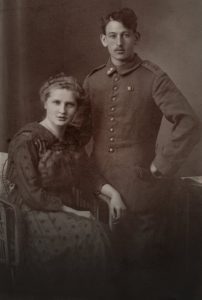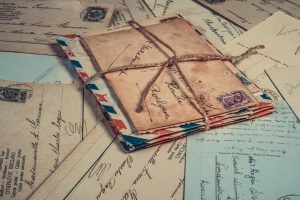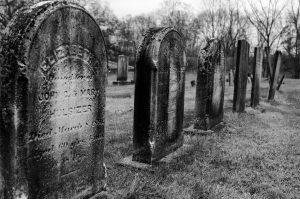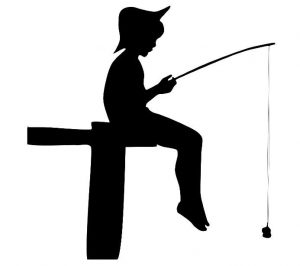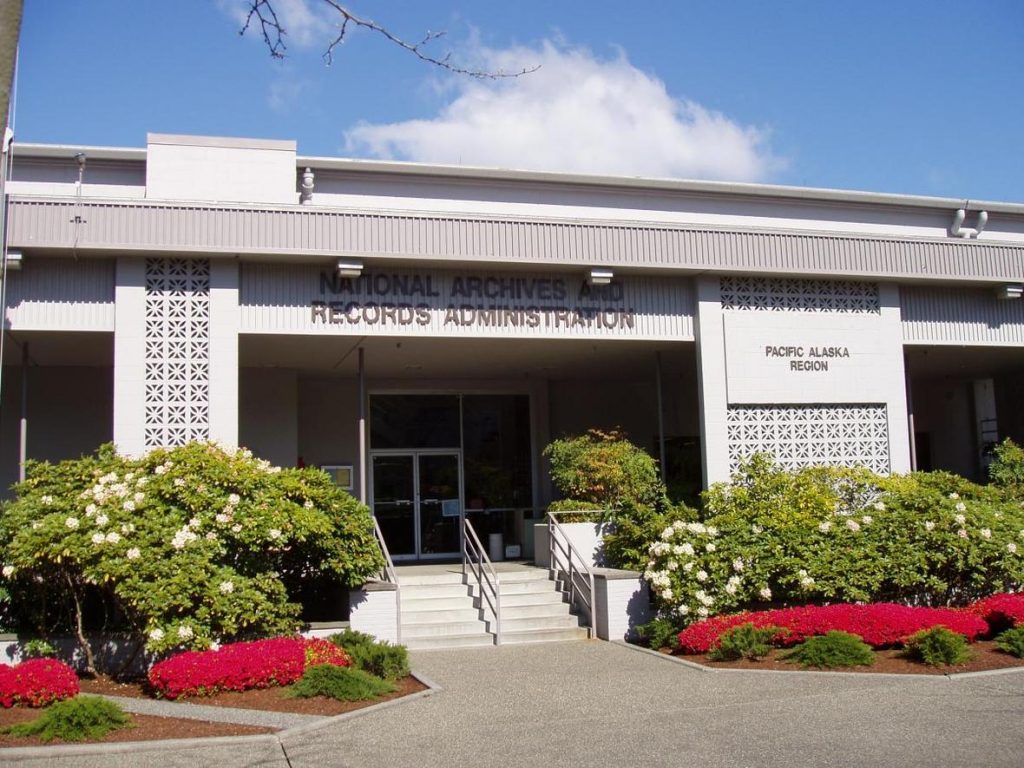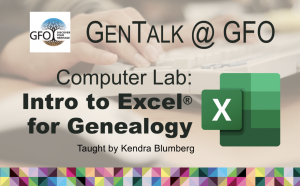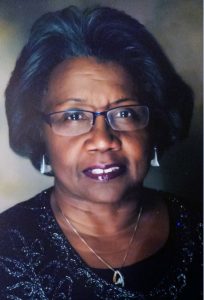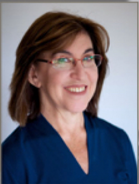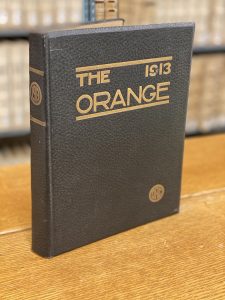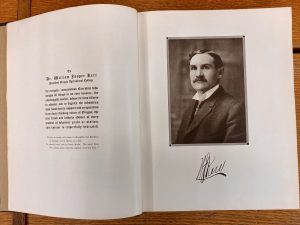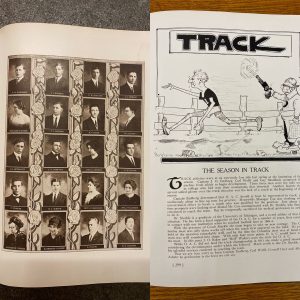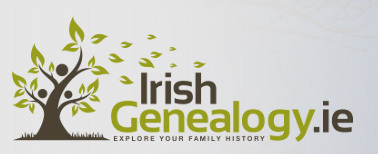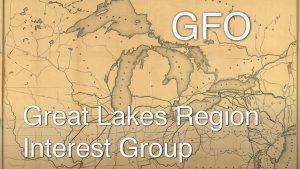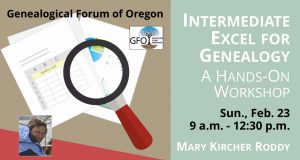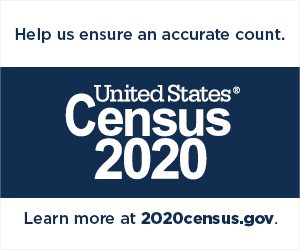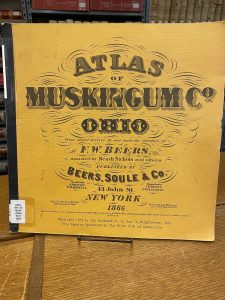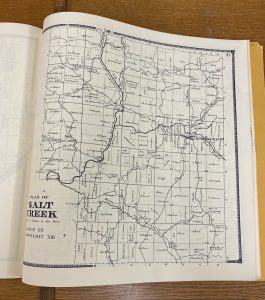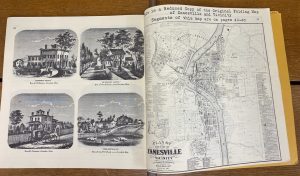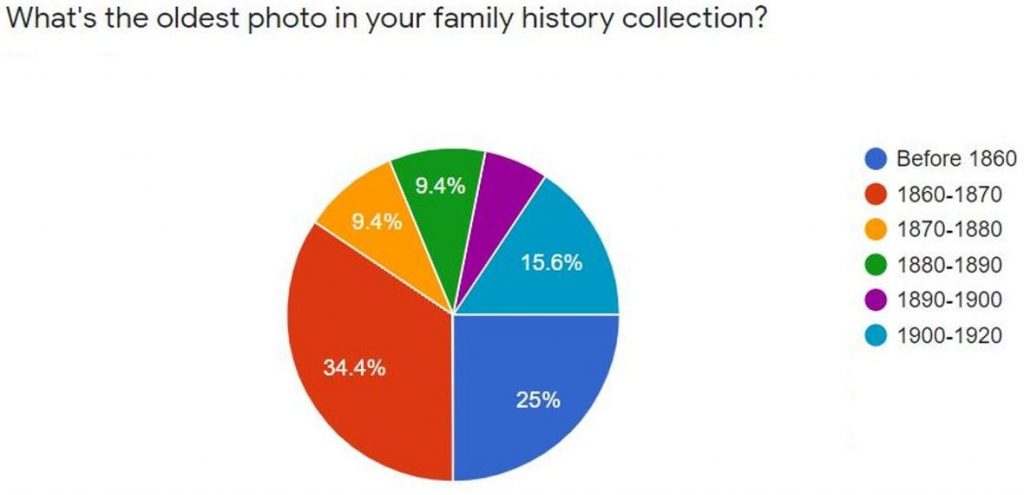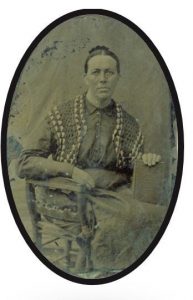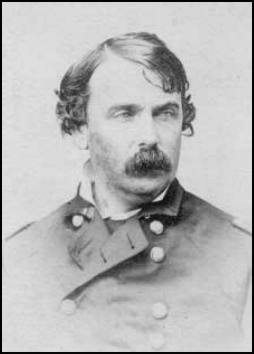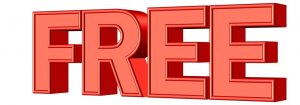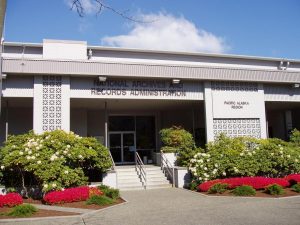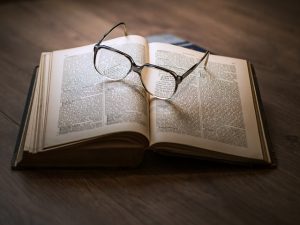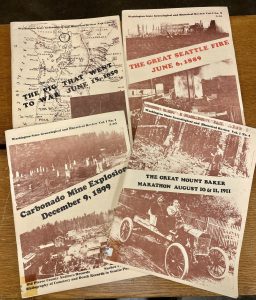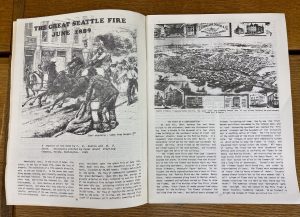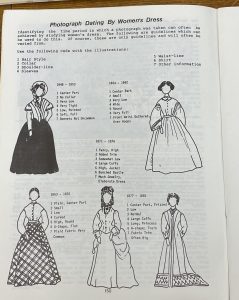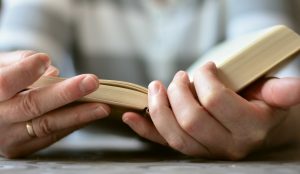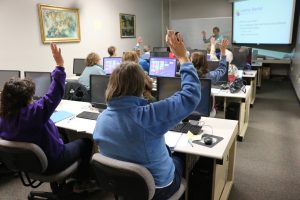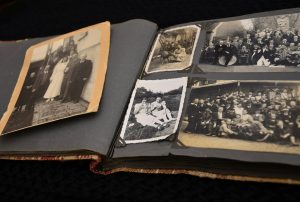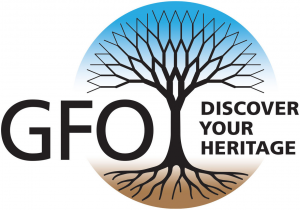
| THE GENEALOGICAL FORUM’s Thursday Evening E-News Edition March 19, 2020 |
| If any membership expires during the time we are closed, the member will still be considered active for one month after the library re-opens. |
| gfo.org | 503-963-1932 | info@gfo.org Be sure to check the complete GFO CALENDAR. Also, don’t miss the current issue of The Forum Insider |
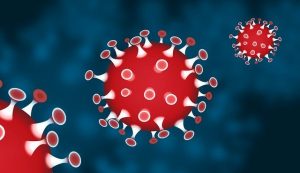
| This is a tough time we’re living through. Our parents and grandparents survived through a decade of deprivations during the Depression and then faced even more during World War II. We’re living through a global calamity ourselves that rivals or surpasses anything in the last 100 years or more. Ironically, the best thing we can do to help each other is to stay apart. An epidemiologist in my family is very firm; we must stay home and away from other people. A journalist I know in British Columbia, Anne Casselman, put it very well. “Think of COVID19 as a fire. And each person who carries it is emitting all these embers that can in turn start their own fires. Social distancing starves the fire of new fuel and thereby extinguishes the flames.” Even people who are not at risk need to act for the most vulnerable members of society. To be honest, once the scale of this pandemic was clear, the decisions we made were clear cut. Here’s a quick rundown of the latest: * If your membership expires(d) during February, March, April, or until the closure ends, you will still be considered active for one month after the library re-opens. *The GFO is closed at least until April 1, likely longer. *Printing of the Insider is suspended. It will only be available electronically. *No volunteers are allowed in the library, even die hards with keys, who might wish to come in. *During the closure no memberships will be processed, no deposits will be made in our bank, and all book sales are suspended. * This week we changed our Membership Meeting for ballot nominations from in-person to a telephone conference call. * The Board Election ballot itself is going electronic. You won’t need to print it, then drop it off or mail it. If we’re still closed, we might not even receive print ballots in time. (GFO members will receive an email later with voting instructions.) * We’re going to use a video conferencing service so the board can meet safely from each of our own homes. Finally, I’m thrilled that African American Special Interest Group leader, Janice Sellers, has changed her presentation into a free webinar this Saturday. Read the article below. And sign up! I hope you are well and staying home to keep others healthy too. #dontbeaspreader —Vince Patton, GFO President |
| GFO’s Black Newspapers Lecture Moves Online |
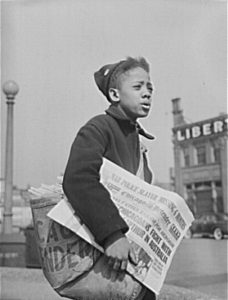
| Special Webinar! We hated having to cancel the talk planned for Saturday about Using Online Historical Black Newspapers for Genealogical Research. Professional genealogist, and GFO African American Special Interest Group leader, Janice Sellers is moving this presentation online! Saturday, March 21, 2:30 – 4:30 p.m. Pacific Time. Historical newspapers often provide key information needed to break through brick walls. Many historical Black and abolitionist newspapers are available online, with more being added. Most are on subscription sites, while some are free. This class provides an overview of the historical roles of Black newspapers, how they can be a substitute for missing vital records, what is online and where to find it, and strategies for access and searches. This way we can all be safe at home while we continue to learn. |
| By the way, Janice has another lecture available at Legacy Family Tree Webinars called Mining the Newspaper Databases on MyHeritage for Your Family History. It’s free as well. |
| GFO March Star: Anita Davidson |
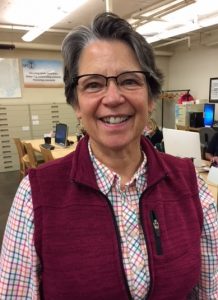
| Anita Davidson Anita
is a GFO research assistant who recently went above and beyond the call
of duty. A generous woman in the area wanted to donate dozens of books
to the GFO. Anita
agreed to personally go to her home to pick them up. Upon arriving, she
learned the woman wanted to inventory the donations first. Anita spent
another hour with the donor creating that list on the spot. Then she
brought six heavy boxes back to the library. For this, the Board unanimously makes her our GFO Star for March. Thank you, Anita! |
| Hall of Fame Nominations Sought (Correction) |

| It’s time for GFO Hall of Fame Nominations! Any GFO member may nominate another member by May 1. (Date is correct now.) Nominees
must have a well-documented history of service, leadership, and
accomplishment in more than one facet of the GFO, over a long period of
time. Please include: * Name, list of services, activities, positions, and accomplishments; * A narrative describing the nature of their work in terms of its importance to the success of the GFO; * A short biography. Please send to secretary@gfo.org by May 1. The board will decide if any merit selection. Winners are awarded in June and receive a free Life Membership and their name on our Hall of Fame plaque. |

| You are living history… |
| Reprinted with permission from Donna Cox Baker, The Golden Egg Genealogist. What would you give to have an in-the-moment diary from an ancestor who was living through a world disaster? Wouldn’t you cherish the opportunity to see it through their eyes? To know their hearts in a bad time? To watch it unfold, through the eyes of a person who didn’t know how it was going to turn out? We are living history. History books will devote energy to telling this story in hindsight, in generalities. They’ll describe it from the perspective of those who know how it turned out. We don’t yet have that luxury. Here is another worthwhile project to consider as we confine ourselves for the greater good. Think about a diary, written for your descendants. You can even write it as a letter–adding new thoughts as your experience unfolds. An open and honest look at what COVID-19 looked like the first time you saw it. What have your opinions been, and are they changing? Are you worried? Are you sick? Talk to them about the experience. Let them feel how this situation is unfolding in your home, in your town, in your state. Your descendants will treasure it. They won’t care if you are a brilliant writer. They won’t care if you overreacted or underreacted. Had a mundane or dramatic experience. They will care about you–as a person facing the unknown. If you wait until it’s over, hindsight will color your depiction. Start today, and let it unfold. Don’t edit it later. Keep it real, and make sure they can find it a hundred years from now. Take care, friends, and stay well. |
| What’s New in Online Digital Resources |
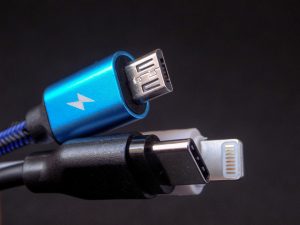
| Since we are unable at this time to process new books and new digital content for the GFO Library, we will be temporarily suspending our “What’s New” weekly feature. In this time of social distancing and responsible sheltering in place, we will instead share online resources so that you can continue to learn and build on your genealogy skills from home. |
| • While you’re protecting yourself and your community by staying at home, how are you filling your time? The Occasional Genealogist has lots of ideas for your family research. Check out: 5 Genealogy Tasks When You’re Stuck at Home • For tips on where to find Digital Historical Books online, see the latest entry at Empty Branches on the Family Tree: 5 Resources for Finding Digitized Historical Books Online |
| Survey Results: |
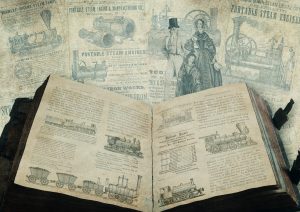
| A whopping 85% of respondents to last week’s survey said newspapers have been a valuable resource for solving genealogical problems. Here are some of the many responses we received (edited for brevity). We hope you find some helpful resources within these comments. |
| • Using the Family History Center Portal,
I found obituaries for two of my great-grandmothers. They both died
young. I was pleased to learn more about each of them. Those small town
newspapers are full of information. • I was unable to access the newspaper obituaries of my family in Vancouver, B.C., Canada online, but a local woman, found on Cyndi’s List, obtained copies for a very reasonable price. My great-grandparents were apparently a very loving little (very short) couple. • I finally found my ancestor’s village in Alsace mentioned in the obituary of the youngest son! The newspaper was accessible through the local library in Vincennes, Indiana. • Online Salem newspaper research and the Multnomah County Library online Oregonian databases have answered many questions. I’ve Interlibrary loaned many microfilm newspapers for many places including New Mexico, Ohio, Oregon, and others I can’t remember. I LOVE newspaper research! |
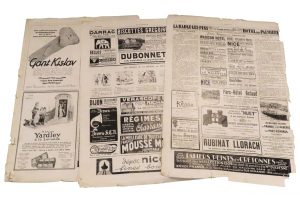
| • I found mention of my grandfather skipping out on a court care in North Dakota and fleeing to Montana where he was tracked down. It was in the Discover America’s Story Archive • I discovered what happened to my paternal grandfather who I could not find after 1912. He died and was buried in Mt. Angel in 1957. Thanks go to Knight Library in Eugene for their vast collections of newspapers. • I could not find what happened my gggrandfather. I searched (unsuccessfully) on GenealogyBank in his home state. I expanded the search to all states and eureka! IN another state, he had tragically died by drowning while walking on a frozen river. His brother tried to save him but had to watch him as he “sunk to rise no more.” What a dramatic end to my quest…now I had the date, place, and circumstances. • Finding a record of a divorce; Oregonian; Accessed at GFO using a website on GFO computers. Found the named individuals, date and place of the divorce decree. • I was stunned to find newspaper articles about my great-grandfather, an immigrant from Koblenz, Rhineland, who was a founding member of a floral society in San Francisco California. I had no idea he’d been west of St. Louis. • I had found a marriage license, but the return portion had not been filled out, so I didn’t know if the couple were actually married. In a digitized version of the newspaper on NewspaperArchive.com, I found an announcement that was published the day after the wedding with a full description, including the name of the officiant and the wonderful comment, “[A] large number of useful presents [were] given to Mr. and Mrs. Bender |
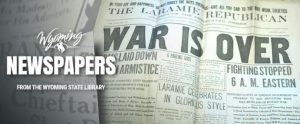
| © 2019 Wyoming State Library; all rights reserved. • In Wyoming NEWSPAPERS,
I found my grandparents’ 1900 wedding announcement, and references to
them “coming in from the ranch,” (I thought they lived in the city) and
an article saying my grandfather was going to Oregon with the intention
of relocating if he liked it. The real eye-opener was an article
detailing the funeral service for my grandfather’s father. It named his
surviving brother, who lived in Laramie since 1870s. I didn’t know he
had a brother!! But now I know why their destination upon immigrating in
1888 was “middle of nowhere” Laramie, Wyoming. What a treasure that
online site turned out to be. It led me to 3 different newspapers. • I was able to track down exact dates for events (in an ancestor’s autobiography) in newspaper articles thanks to the U of O Historic Oregon Newspapers collection. (I LOVE this resource!) • Old Fulton Postcards has a remarkable and freely accessible compilation of New York newspapers, and some beyond New York. • This wasn’t a genealogical problem so much as an amusing footnote, but I learned from some online historic issues of The Oregonian that my 3rd-great-grandfather ran twice for Polk County Commissioner on the Prohibitionist Party ticket (in 1900 and 1902). He lost both times, which might’ve had as much to do with his party affiliation as the fact that he actually lived in Yamhill County. • Repeated stories about my Oregon pioneer ancestors revealed to me small town life and how an ordinary person may hold many positions and be a force in the community. Who knew? Not me, the city dweller. |
| New Survey: Preserving Research |
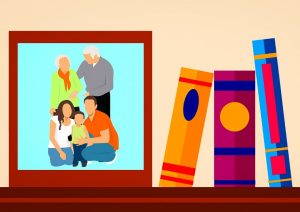
| What will happen to your research when you die? Have you made plans to preserve all you hard work? |
| The Week Ahead: The GFO Research Library is closed, and all on-site groups, classes, and work parties are canceled Saturday, March 21st African American Interest Group – Special Online Webinar 2:30 – 4:30 p.m. Pacific Time Join Janice Sellers as she moves her planned presentation, “Using Online Historical Black Newspapers for Genealogical Research” to a webinar format. For details on content and how to register to connect to this free webinar, see the article above. Additional questions to: african_american@gfo.org. |
